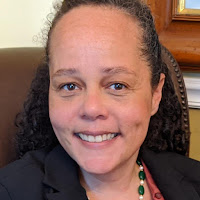Law librarians
Emma Wood and
Misty Peltz-Steele, my brilliant colleagues (and 50% my spouse), have published
Open Your Casebooks Please: Identifying Alternatives to Langdell's Legacy.
The work discusses the revolutionary contemporary movement of open-educational resources (OERs), a term, I learned, coined by UNESCO in 2002, particularly in legal education. Here is the abstract:
Nonprofits, academic institutions, and educators have collaborated, at all academic levels, to create quality Open Educational Resources (OERs) since that term was defined by UNESCO in 2002. These open-source educational materials are in the public domain and published under an open license, meaning that they can be freely copied, used, adapted, and re-shared with the public. They include not only textbooks but supplemental educational materials in various media formats. Their value is such that even federal and state legislatures are taking note and passing laws to incentivize the creation and use of OER in both secondary and higher education. Despite the momentum in academics toward the adoption of open textbooks and supplemental materials, legal academia has been slower to embrace open casebooks. By design, OER offers a great deal of flexibility for educators and the promise of cost savings for academic institutions and students. This paper examines the modern history of casebooks and the OER movement, as well as the various OER platforms ideally suited to create open content for law courses. The authors posit that a greater understanding of OER will give law professors and students a wider range of choice and ownership in course materials.
When I joined my first casebook, published in 2006, it was still important to attach one's project to a prominent publisher, for the purpose of enhancing one's CV and bolstering the tenure-and-promotion application. Thankfully, legal academia has started to recognize the needlessness of conventional publishing as a gatekeeper for legal educational materials. The analysis was hastened by student sticker shock at textbook prices, which, I can attest, do not relieve authors of our day jobs. I myself am, mercifully, no longer at a point in my career at which I need to impress anyone. So I'm teaching Torts this year with "Tortz," my own OER in progress, at no additional charge to students.
The Wood & Peltz-Steele article will appear in 43 Western New England Law Review (2021).

